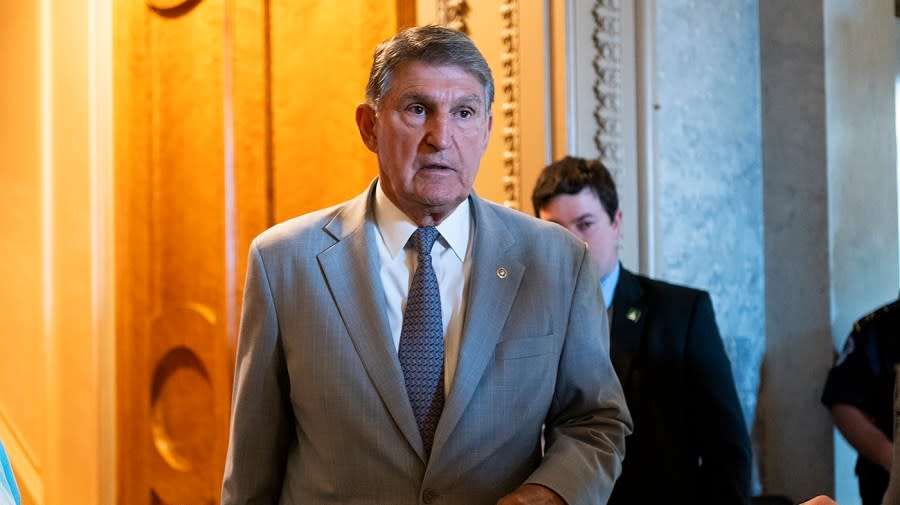Gender-affirming care restrictions added to Senate NDAA

The Senate’s version of the annual defense policy bill would ban the U.S. military from covering surgeries for transgender troops, a development made possible by Sen. Joe Manchin (I-W.Va.) joining Republicans during committee votes.
Added as an amendment during last month’s Senate Armed Services Committee closed-door markup of the bill — known as the National Defense Authorization Act (NDAA) — it would “prohibit the use of funds available to the Department of Defense and any Department of Defense facility to perform or facilitate sex change surgeries,” according to text of the legislation released Monday evening.
Lawmakers also included language that would prohibit the military health system from providing transgender military kids under 18 years old with hormone therapy, puberty blockers, and “any other medical intervention for the treatment of gender dysphoria that could result in sterilization.”
The amendments both passed in 13-12 votes, with Manchin siding with all 12 of the committee’s Republican members.
Another provision, which would have prohibited the changing of gender in Pentagon records, failed along party lines in a 12-13 vote.
The inclusion of such language in the Senate NDAA, which still must be passed by the full chamber, comes as a surprise.
The GOP-controlled House has repeatedly sought to ban gender-affirming care coverage for transgender service members, with the House last month passing its version of the bill filled with efforts to cut such services, among other culture-war provisions.
The Senate Armed Services Committee, however, until now has been able to stave off such amendments put into its NDAA under the Democratic-led panel.
Similar provisions in both bills raise the chances that restrictions on gender-affirming care for LGBTQ troops and family members might make its way into law.
While the committee markup is still far from concrete — with the measure needing to pass the full Senate before being reconciled with the House version and signed into law by the president — it sets the stage for a showdown between the upper and lower chambers over legislation that typically enjoys bipartisan support.
A handful of other controversial measures also made it into the Senate’s NDAA, including one that would prohibit the establishment of new diversity, equity and inclusion positions as well as the filling of vacancies in such positions. Similar language made it into the House’s version of the bill.
Another series of amendments would require that women must register for the Selective Service, though such a proposal is unlikely to pass the full Senate and is not included in the House’s NDAA.
Copyright 2024 Nexstar Media, Inc. All rights reserved. This material may not be published, broadcast, rewritten, or redistributed.
For the latest news, weather, sports, and streaming video, head to The Hill.


